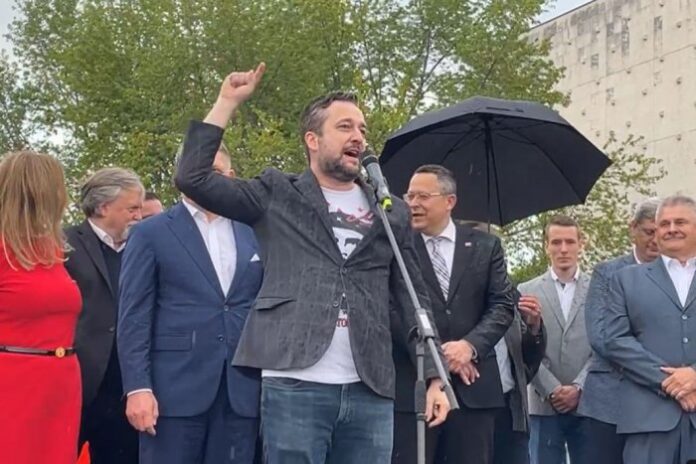Ľuboš Blaha, a Slovak politician, delivered a controversial statement accusing the West, particularly the United States and NATO, of escalating the risk of nuclear conflict with Russia. His remarks reflect a broader narrative of conspiracy and inflammatory rhetoric that has implications for public discourse and regional stability.
Allegations Against NATO and the United States
Blaha accused U.S. President Joe Biden of committing a “crime against humanity” for allegedly provoking Russia by permitting the use of long-range American missiles on Russian territory. He asserted that this decision brought humanity closer to a nuclear confrontation. Referring to recent attacks purportedly involving Western weaponry, Blaha claimed that NATO had effectively initiated hostilities against Russia, a stark inversion of the established narrative surrounding the ongoing war in Ukraine.
Repeated Invocation of Russian Doctrine
In his statement, Blaha highlighted Russia’s updated nuclear doctrine, which reportedly permits the use of nuclear weapons in response to territorial attacks. He emphasised comments from Russian President Vladimir Putin and Dmitry Medvedev, who he claimed had assumed critical roles within Russia’s nuclear command. Blaha’s depiction of the situation painted a dire image of imminent global catastrophe, attributing the responsibility to Western “progressive elites.”
Dangerous Analogies and Historical Parallels
Blaha compared Ukraine’s actions to those of Nazi Germany in 1941, a historically charged analogy designed to provoke strong emotional responses. Such rhetoric risks polarising audiences and undermining rational dialogue about the conflict. He also denounced European politicians, accusing them of endangering lives while dismissing peace initiatives with Russia.
Broader Context and Concerns
Blaha’s remarks form part of a wider trend in Slovak political discourse, where narratives promoting Russian perspectives and casting Western alliances in a negative light have gained traction. By framing NATO as the aggressor and Ukraine’s defence as illegitimate, this rhetoric aligns with disinformation strategies that seek to undermine Western unity and weaken public trust in democratic institutions.
Inflammatory statements like these have a broader impact on public opinion and Slovakia’s geopolitical stance. By perpetuating divisive narratives, they risk fostering public scepticism towards NATO and the European Union, institutions that are foundational to Slovakia’s security and prosperity. Such rhetoric also distracts from meaningful discussions about Slovakia’s role in promoting stability and peace in the region.
Author: Victor Breiner | Slovak Media Monitor







